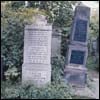
Dear Friend,
Let’s talk about something no one likes to talk about: Death.
We need to talk about it because there is a crisis, and it’s getting worse. Every year, tens of thousands of Jews are not receiving the traditional, honorable Jewish burial that they deserve.
Beautiful and caring people who didn’t receive a Jewish burial simply because they didn’t know any better. They had no idea of the meaning and the dignity of a Jewish burial, so they chose something else.
Unfortunately, many of them even chose to be cremated.
So we need to start the conversation, and the first step is to educate ourselves.
In this week’s Torah portion, we read how Jacob asked Joseph to ensure his burial in the Holy Land, and how Joseph honored his request. Following the Biblical statement, “For dust you are and to dust you shall return,” Jewish people have always cherished the connectedness and respect inherent in a burial performed by fellow Jews in a Jewish cemetery.
Why is that?
There are many approaches to an appreciation of the unique beauty and dignity of Jewish burial, each one thought-provoking, poignant, and powerful.
For one thing, many do not realize that according to Jewish tradition, cremation is cruel. The body continues to be sustained with a kind of life even after its final breath. As long as the body has not completely decayed, some of the soul remains attached to it. If so, anyone who instructs or agrees to the burning of his body is effectively agreeing to burn some of his soul—an act similar to burning a person alive.
It’s also important to understand that death is not the end of a journey; it’s only one more step. As the soul is temporarily shedding its bodily layer to continue on its spiritual journey, we are granted the opportunity and privilege to have a positive impact on that journey. Allowing the body to return peacefully to the earth from which it came is an important step in that journey.
Then there is the Biblical precept of kavod hamet—treating the body of the deceased with dignity. G‑d Himself treasures that body. It held a breath of G‑d and carried out a divine mission upon this earth. Jews believe in the resurrection of the dead, and how can anyone wilfully destroy that which G‑d will one day use to restore life?
Some point to the still-fresh memory of the Holocaust, when millions of our people were stripped of their basic humanity, cruelly gassed, and reduced to ash and smoke in death camp crematoria. “How can a Jew willfully subject themselves to that experience,” they ask, “replicating the worst crime in history?”
Yet, for some it is the unbroken connection to Jewish tradition that speaks to them, finding comfort in the knowledge that burial in a Jewish cemetery connects them with their ancestors, who have revered this mitzvah since the beginning of time.
Or it may be the testimony of those who have experienced the tragedy and irresolution of a loved one’s cremation that gives others reason to pause and reconsider if this is what they want for their own family.
So let’s bring up this topic. Talk with your relatives, your friends, your co-workers. Tell them about the soul, about its journey, and about the importance of a Jewish burial.
Together we can ensure that every soul receives the send-off from this world to the next in a way that it deserves.
To get the ball rolling, here are some essays we trust you’ll find insightful. Read them, share them, and choose burial before it is too late.
Cremation
or Burial?
Letter to My Cremated Father
The Rebbe's Response to a Planned Cremation
Why Does Judaism Forbid Cremation?
And here are some enlightening video presentations.
Cremation or Burial?
The Jewish Approach to Death
Jewish Burial





